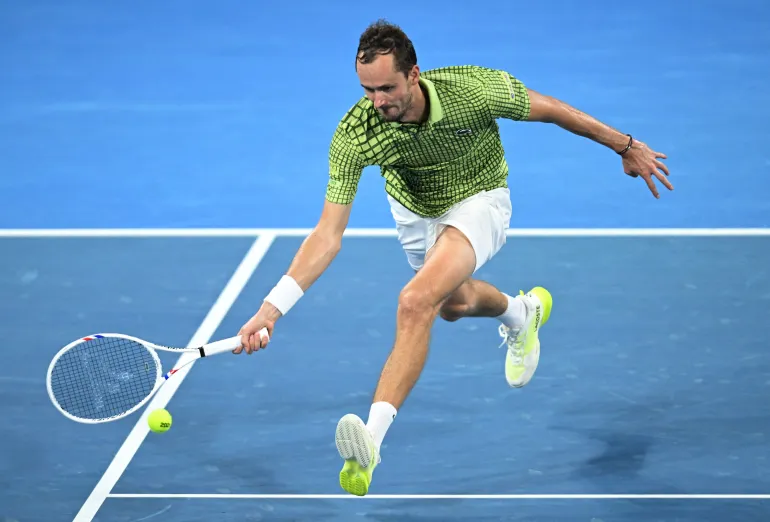Medvedev defeats Nakashima to win Brisbane trophy before Australian Open | Tennis News
Former world number one overcomes Brandon Nakashima in straight sets to stake his claim as an Australian Open contender.
Published On 11 Jan 2026
Three-time Australian Open runner-up Daniil Medvedev has warmed up for an assault on this year’s opening Grand Slam in perfect fashion by winning the Brisbane International final.
The Russian world number 13 was too strong for American Brandon Nakashima on Sunday and ran out a 6-2, 7-6 (7/1) winner in 96 minutes at Pat Rafter Arena for his 22nd ATP Tour title.
Recommended Stories
list of 4 itemsend of list
Medvedev broke a shell-shocked Nakashima twice in the first set and looked on course for a quick victory.
Nakashima rallied in the second to force a tiebreak, but the towering Russian raced to a 5-0 lead in the breaker, and the match was as good as over.
“I started pretty strong, but then Brandon found his way back, saved some match points, then almost got it to a third set,” Medvedev said.
The Australian Open begins in Melbourne on January 18.
“It’s been a great start to the year,” said Medvedev, who made the final in Brisbane in 2019.
“I said then that I would try and come back and win it. I came back seven or eight years later, and I’m happy to hold the trophy.”

